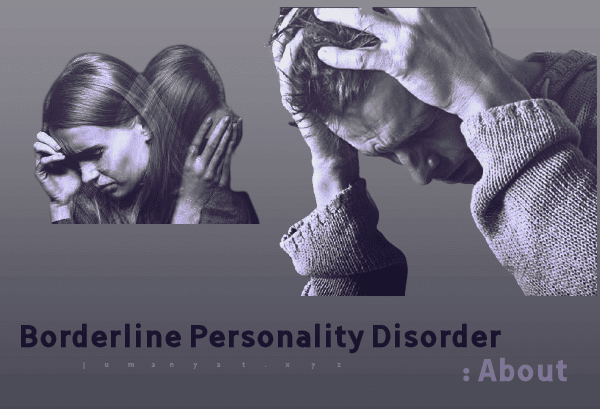Borderline Personality Disorder, or BPD, is a very serious, yet very uncommon mental illness, that affects less than 2% of American adults. which is why I want to teach others about this mental illness. BPD is often misdiagnosed because there is not yet a definite way of diagnosing it.
Those with BPD often…
- have trouble regulating their emotions and thoughts
- exhibit reckless and impulsive behaviors regarding spending, sex, substance abuse, reckless driving and binge eating
- have very unstable relationships with others, especially romantic relationships
BPD can be diagnosed by experienced therapists, and psychiatrists, that have gotten to know the patient very well. BPD is diagnosed by these medical professionals using the DSM’s guidelines that indicate a person must exhibit five or more of the following signs and symptoms, for an extended period of time.
- Extreme reactions to abandonment, that may be real, or only perceived
- Patterns of intense and problematic relationships with those around them, alternating between extreme closeness, and complete disregard and hatred
- Unstable, or distorted self image, resulting in changes of feelings, opinions, and plans
- Recurring suicidal behaviors or threats, and self-harming behaviors
- Intense mood swings
- Chronic feelings of boredom and emptiness
- Abnormal feelings of intense anger
- Stress-related paranoid thoughts or severe dissociative symptoms, such as feeling cut off from oneself, observing oneself from outside the body, or losing touch with reality
Those with borderline personality disorder most likely will have co-occuring mental illness’s such as depression, anxiety, substance abuse and/or an eating disorder.
BPD is still in the early stages of finding treatments that are successful. Psychotherapy, also known as talk therapy, is most often the first treatment for those with BPD, and other mental disorders. Cognitive behavioral therapy, also known as CBT, is the most common type of psychotherapy used for those with BPD. CBT is used to help those with BPD realize any beliefs about themselves that may be inaccurate and that may be causing problems with their self-image and self-esteem.
It also helps with social interaction and anxiety problems. CBT is also used to regulate mood, and to reduce suicidal thoughts, and self-harming behaviors. There is also dialectical behavioral therapy (DBT). DBT’s main focus is mindfulness, the state of focusing solely on the present, and allowing a flow of thoughts without getting stuck on any singular concern. DBT is supposed to help regulate extreme emotions, reduce self-destructive behaviors often found in BPD, and help repair broken relationships. No medications are prescribed specifically for BPD, although medication can be prescribed for the co-occuring disorders, that may also help reduce symptoms of BPD.
As with any other mental illness, it is important to seek help if you believe you, or a loved one may have the illness. If you are diagnosed with BPD, there are many things you can do to help yourself. Many tips can be found here: http://www.mind.org.uk/information-support/types-of-mental-health-problems/borderline-personality-disorder-bpd/self-care-for-bpd/#daytoday

Comments
Post a Comment